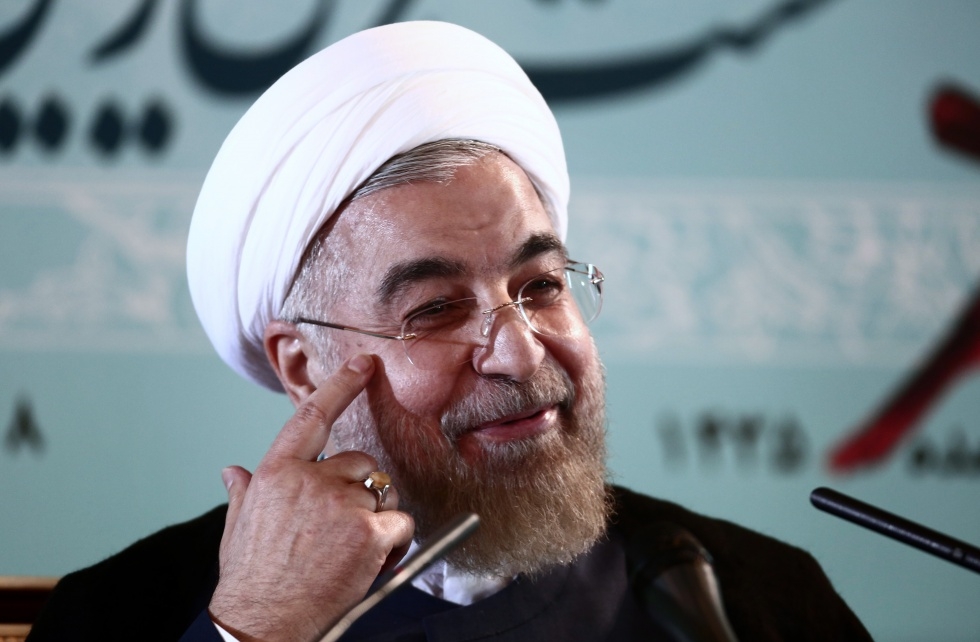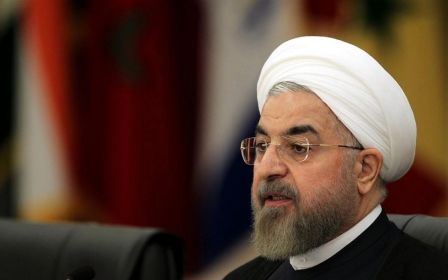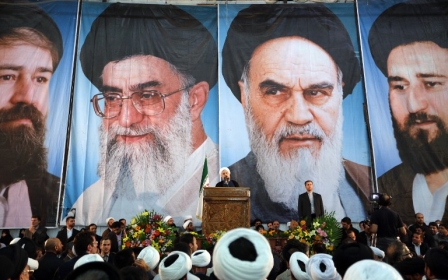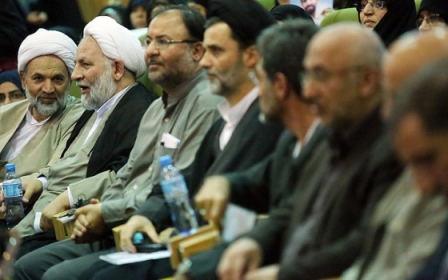Rouhani condemns internet censorship and restrictive social laws

Iranian President Hassan Rouhani has come out against internet censorship, gender segregation and the enforced wearing of the headscarf (hijab) in a provocative speech on Sunday broadcast live on state television.
Iran has a policy of filtering online content, which leaves popular websites such as Facebook, Twitter and YouTube inaccessible without the use of illegal software.
Iranian authorities are also often accused of deliberately slowing down the Internet to make many websites harder to access.
The decision of Rouhani's government to approve faster 3G mobile Internet licences for two Iranian companies last month was seen as a first step toward making Internet access easier.
But he went further Sunday and said filtering was counter-productive.
"Some people think we can fix these problems by building walls, but when you create filters, they create proxies," Rouhani said, referring to proxy servers in other countries used by Iranians to circumvent national regulations.
"This (current policy) does not work. Force does not produce results," he added, in a speech broadcast live on state television.
The 3G licenses decision caused controversy with conservative clerics and officials arguing that video call functions on smartphones could expose youngsters to "immoral content".
Iran's ministry of telecommunications, technology and information later stated that video calling would not be available, despite such services -- including FaceTime and Skype -- being accessible on regular Internet connections.
Rouhani also hit out at the recent decision of Tehran's municipality to segregate staff by gender, a step implemented by the capital's mayor and hailed by conservatives.
Referring to those who "constantly say we must separate girls and boys," he said the Islamic republic's founder, Ayatollah Ruhollah Khomeini, vehemently opposed universities adopting such a policy after the 1979 revolution.
Rouhani also criticised laws requiring obligatory wearing of the hijab.
"We have experienced so far that social values and the wearing of the headscarf cannot be upheld by soldiers and police officers," said the Iranian president, describing police moves to enforce the hijab as “silly.”
Since Rouhani took office last August he has been accused of being too soft on hijab.
In October, he told the police to be lenient on women not wearing the headscarf.
"If there is a need for a warning on the hijab issue, the police should be the last to give it," he told police academy graduates.
"Our virtuous women should feel safe and relaxed in the presence of the police," he said.
Recent years have seen many women wear a thin veil that barely covers the hair and tight clothing or coats reaching mid-thigh instead of the long coat or chador, prompting MPs to write to Rouhani to demand tougher police action.
Khamenei undergoes prostate surgery
Iran’s Supreme Leader, Ayatollah Khamenei, has undergone successful prostate surgery ata government hospital in Tehran, according to state media.
Few details were given of the illness by the official IRNA news agency, which rarely reports on the health of the 75-year old ruler of the Islamic Republic.
Khamenei, seen as a social conservative in contrast to the more liberal Rouhani, was visited by the President while in hospital:
New MEE newsletter: Jerusalem Dispatch
Sign up to get the latest insights and analysis on Israel-Palestine, alongside Turkey Unpacked and other MEE newsletters
Middle East Eye delivers independent and unrivalled coverage and analysis of the Middle East, North Africa and beyond. To learn more about republishing this content and the associated fees, please fill out this form. More about MEE can be found here.




